This blog post series is a facilitated group study of the book Walk Out, Walk On by Margaret Wheatley and Deboarh Frieze. To read the first entry from the series, in which we visit Mexico and Brazil, click here.
This week in our Walk Out, Walk On journey, we visited India and Greece.
First in Shikshantar, India, we learn about swaraj and gift culture. Swaraj, Sanskrit for “self-rule,” is the foundation for human liberation both at the individual and societal levels. In Shikshantar, swaraj takes the form of learning sustainable ways to live together, promoting resilience and self-sufficiency. For example, cow dung – something one might see as simply waste – is used in a myriad of productive ways, such as fuel, soap, and soil, by the Sankshantar community.
In addition to finding a variety of uses for cow dung, our friends in Shikshantar teach us about gift culture and encourage us to question the dominant paradigm of transactional culture. The epitome of gift culture in action is the cycle yatra, in which twenty-five cyclists set out on the road for a week of service and community. They leave their wallets at home and make a firm commitment not to accept money. Rather, they seek human connections and ways to be of service. The cyclists allow themselves to be vulnerable and trust that someone, somewhere will provide.
Watch a video of the Cylce Yatra
In addition to gift culture, we also explore concepts of right livelihood and trusteeship. As we learn through the story of Mukesh, the cow farmer who supplies other farmers with manure and compost, it is possible to live in a way that “balances service with self-interest, community vitality with economic security,” and is based upon sufficiency rather than growth. Gandhi’s concept of trusteeship teaches us that we are not the owners of anything, but rather the guardians or stewards, and as such, we do not have a right to take more than we need or be wasteful.
The authors ask us to reflect:
How are the demands of consumer culture impacting you, your family, your community?
Where might you next offer your talents, ideas, and skills as gifts?
Next we travel to Greece, where all the friends we have met along the journey, from Mexico, Brazil, South Africa, Zimbabwe, India, and many places in between, meet up for a 10-day “Art of Learning Centering.” Unlike other conferences or annual gatherings, this one comes with no agenda, no schedule, no facilitators, no plan other than to learn from each other and help our hosts, Maria and Sarah, discover what to do and how to live on their land.
In spite of the lack of agenda, a daily rhythm emerges, involving community meals, dialogue, work, and more conversations. People offer their skills as service, and everyone teaches and learns from each other.
The other core concepts we explore in Greece are intervention and friendship. The authors discuss how intervention has become our culture’s main conduit for problem-solving, and is always imposed from the outside onto people who are viewed as needing “help” and having problems. In contrast, friendship “creates a container in which we can co-create, support one another, and bounce back from conflicts that arise…We can walk out alone, but we can only walk on in friendship.” Friendship is the bedrock of walking on.
Reflecting on our time in Greece, the authors ask:
What if we stopped pursuing the perfect problem-ending techniques and decided to become experts on being there for each other?
When have you experienced someone trying to “help” you? What happened to your relationship?
What have you learned about the difficulties and strengths of friendship in your own life experience?
Next week, we make the journey home.
What inspired you about these chapters? How can these examples inform your own work in your community?
We invite you to share your answers to the questions above, key takeaways from the reading, favorite quotes, and additional reflections in the comments section below! Please feel free to email education@mettacenter.org with any questions. We also highly encourage you to visit the Walk Out, Walk On home page for additional resources, stories, and links!







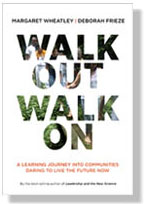
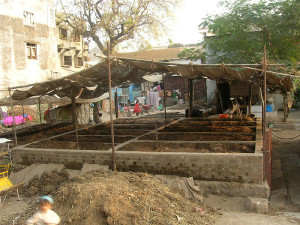
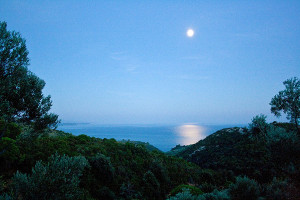
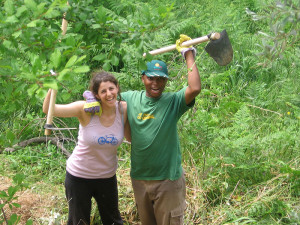
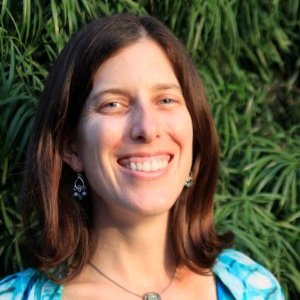

[…] By Stephanie Knox Cubbon […]
In India I was struck by how the chapter opens with a proverb about a river. As I read the chapter I felt that river winding through the streets of India, feeling the passion of people and their beliefs. As a river flows at it’s own pace the people work at their own pace for we are all individuals. In both India and Greece they spoke of our gifts and gifting, giving to not only society but to one another. Using our talents and our creativity ” We have received them as a gift and grace. We pass them on as a gift and grace;it is a river which keeps flowing.”
In Greece I sensed a people’s respect for one another and the self. Also a joy for living and experiencing daily life; gratitude.